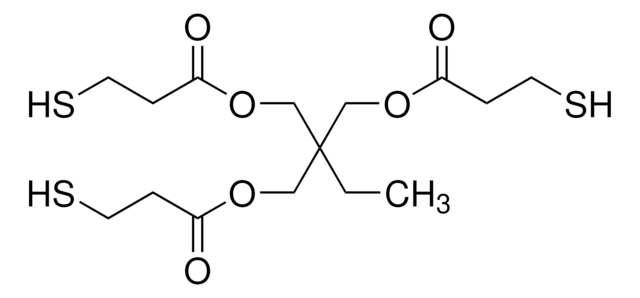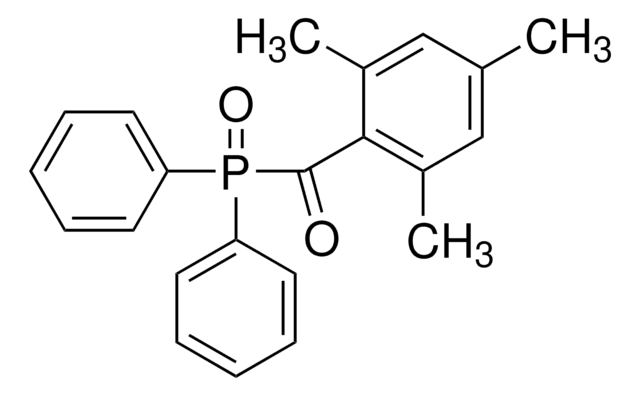466867
Polybutadiene, predominantly 1,2-addition
approx. 90% 1,2-vinyl
Iniciar sesiónpara Ver la Fijación de precios por contrato y de la organización
About This Item
Fórmula lineal:
[CH2CH(CH=CH2)]n
Número de CAS:
MDL number:
UNSPSC Code:
12162002
PubChem Substance ID:
NACRES:
NA.23
Productos recomendados
Quality Level
refractive index
n20/D 1.5002 (lit.)
viscosity
30-100 poise(45 °C)(lit.)
transition temp
Tg −30 °C
density
0.86 g/mL at 25 °C (lit.)
SMILES string
C=CC=C
InChI
1S/C4H8/c1-3-4-2/h3-4H,1-2H3/b4-3+
InChI key
IAQRGUVFOMOMEM-ONEGZZNKSA-N
Categorías relacionadas
Application
- Transforming Polybutadiene with Tetrazine Click Chemistry into Antioxidant Foams That Fluoresce with Oxidation: This research uses tetrazine click chemistry to modify polybutadiene, enhancing its properties to create antioxidant foams that respond to oxidation with fluorescence, demonstrating innovative ways to utilize 1,2-addition polybutadiene (RE Bagge et al., 2017).
- Isoxazoline-based porous polymer for the highly effective adsorption of 2,4,6-trinitrotoluene (TNT): Catalyst-free click polymerization between an in situ generated nitrile oxide with polybutadiene. This article explores the enhancement of polybutadiene′s adsorptive properties for environmental cleanup applications, emphasizing how its structural characteristics affect performance (H Deng et al., 2020).
- Modification of polybutadiene with trifluoromethyl and clickable azide groups in one shot: This paper describes the simultaneous introduction of trifluoromethyl and azide functional groups into polybutadiene, showcasing the versatility of 1,2-addition polybutadiene in chemical modifications (S Wang et al., 2021).
Storage Class
10 - Combustible liquids
wgk_germany
WGK 3
flash_point_f
Not applicable
flash_point_c
Not applicable
ppe
Eyeshields, Gloves, type N95 (US)
Elija entre una de las versiones más recientes:
¿Ya tiene este producto?
Encuentre la documentación para los productos que ha comprado recientemente en la Biblioteca de documentos.
Gregory P Robbins et al.
Langmuir : the ACS journal of surfaces and colloids, 26(17), 14089-14096 (2010-08-14)
The polymersome, a fully synthetic cell mimetic, is a tunable platform for drug delivery vehicles to detect and treat disease (theranostics). Here, we design a leuko-polymersome, a polymersome with the adhesive properties of leukocytes, which can effectively bind to inflammatory
Joan M Widin et al.
Journal of the American Chemical Society, 134(8), 3834-3844 (2012-01-28)
Controlled/"living" polymerizations and tandem polymerization methodologies offer enticing opportunities to enchain a wide variety of monomers into new, functional block copolymer materials with unusual physical properties. However, the use of these synthetic methods often introduces nontrivial molecular weight polydispersities, a
P S Brown et al.
Langmuir : the ACS journal of surfaces and colloids, 28(38), 13712-13719 (2012-09-13)
Two-dimensional hexagonally ordered honeycomb surfaces have been created by solvent casting polybutadiene films under controlled humidity. Subsequent CF(4) plasmachemical fluorination introduces cross-linking and surface texturing, leading to hierarchical surfaces with roughness on both the 10 μm (honeycomb) and micrometer (texturing)
Anton Berthold et al.
Macromolecular rapid communications, 32(16), 1259-1263 (2011-06-22)
We present an efficient method for functionalizing the large polymer-air interface of a gyroid nanoporous polymer. The hydrophilicity of nanoporous cross-linked 1,2-polybutadiene is tuned by thiol-ene photo-grafting of mercaptosuccinic acid or sodium 2-mercaptoethanesulfonate. The reaction is monitored by FT-IR, UV-Vis
Nimi Gopalakrishnan et al.
Optics letters, 36(17), 3350-3352 (2011-09-03)
We demonstrate and describe how nanoporous liquid core waveguides can exclude scattering particles, making them an ideal integrated platform for analysis of turbid solutions. Milk with 0.5% fat showed an optical propagation loss of 0.05 dB/mm at 633 nm in nanoporous waveguides
Nuestro equipo de científicos tiene experiencia en todas las áreas de investigación: Ciencias de la vida, Ciencia de los materiales, Síntesis química, Cromatografía, Analítica y muchas otras.
Póngase en contacto con el Servicio técnico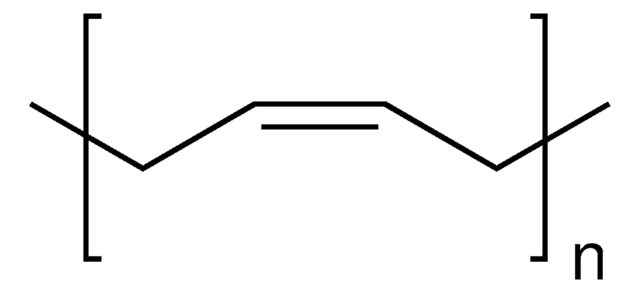
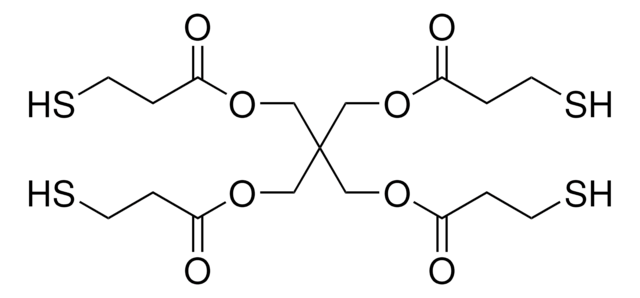
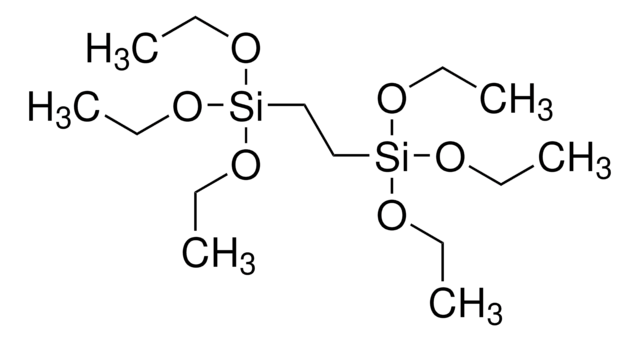
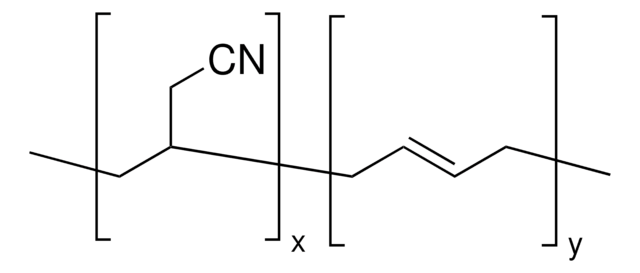
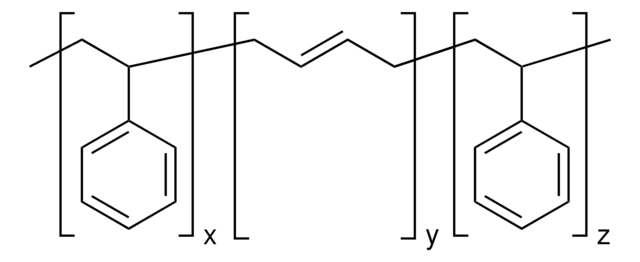
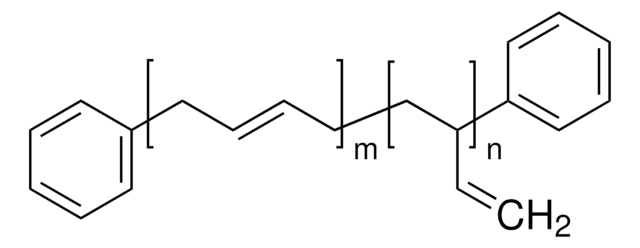
![Bis[3-(triethoxysilyl)propyl] tetrasulfide technical, ≥90% (NMR)](/deepweb/assets/sigmaaldrich/product/structures/242/790/625f5cba-32bd-4acf-a3be-e119e9cf844f/640/625f5cba-32bd-4acf-a3be-e119e9cf844f.png)
